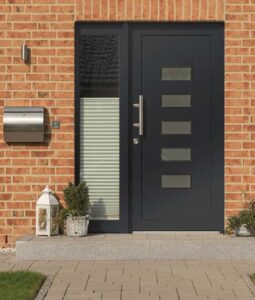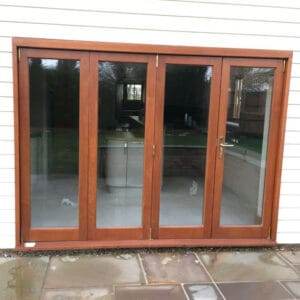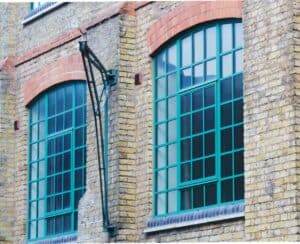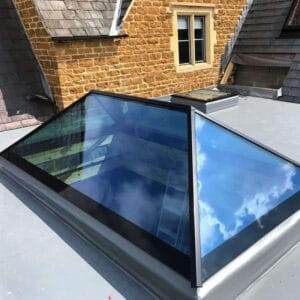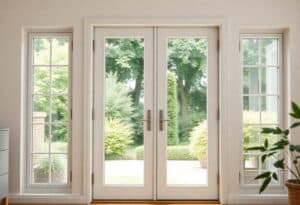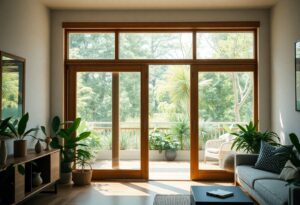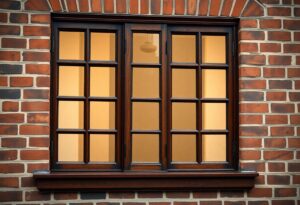It’s important to create a peaceful environment in your home, and noise reduction windows can significantly enhance your living space by minimising external disturbances. These innovative windows are designed to block out unwanted sounds, providing you with the tranquility you need to relax and rejuvenate. By investing in quality noise reduction windows, you can transform your home into a sanctuary where you and your family can thrive, free from the distractions of the outside world. Discover how these windows can be the solution to your noise-related struggles.
Understanding Noise Pollution
A sanctuary at home should be free from the disturbances of the outside world. Noise pollution is an ever-increasing environmental issue, stemming from various sources like traffic, industrial activities, and urban development. These incessant sounds can disrupt your daily life, leading to adverse effects on your health and well-being, making it vital to understand the significance of noise reduction solutions.
Definition and Sources of Noise Pollution
Understanding noise pollution involves recognising it as any unwanted or disruptive sound negatively impacting your quality of life. Common sources include the incessant din from traffic, construction sites, and ongoing industrial activities. The harmful effects of noise can range from elevated stress levels to sleep disturbances and can significantly diminish your overall well-being.
Impact of Noise Pollution on Well-being
Noise pollution can lead to several negative consequences that directly affect your well-being. You may experience increased levels of stress, difficulty sleeping, and decreased productivity in your daily tasks. Studies have shown that chronic exposure to loud environments can elevate heart disease risks and contribute to mental health issues, demonstrating the urgent need to tackle this pervasive problem.
And the impact of noise pollution is not to be underestimated. Prolonged exposure can contribute to serious health problems like high blood pressure and anxiety disorders. Statistics reveal that over 30% of individuals living in noise-polluted areas report significant sleep disruptions. Taking steps to mitigate noise levels in your environment can lead to improved mental clarity and overall health, ultimately creating a more serene and restorative home environment.
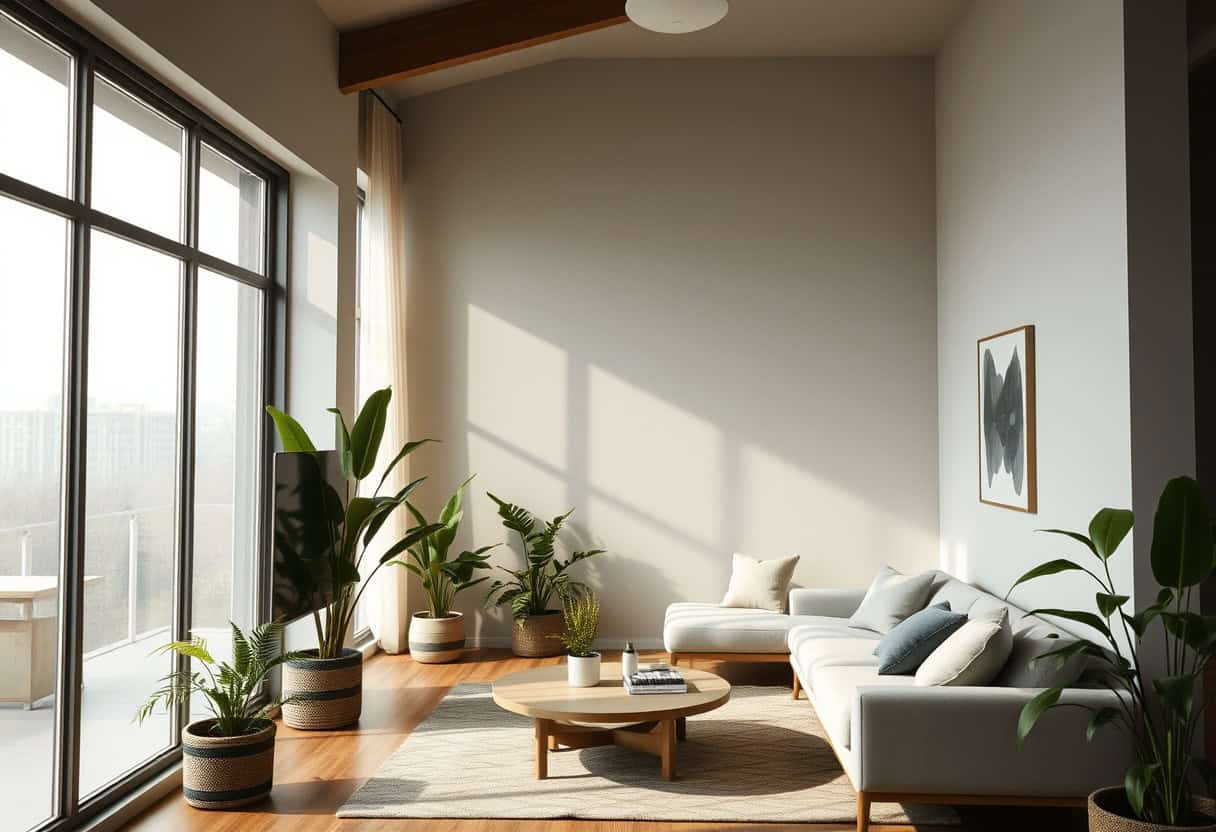
Types of Noise Reduction Windows
You have several options when choosing noise reduction windows for your home. The most common types include:
| Type | Noise Reduction Capabilities |
|---|---|
| Single Glazed | Minimal noise reduction. |
| Double Glazed | Moderate noise reduction. |
| Triple Glazed | Superior noise reduction. |
| Laminated Glass | Enhanced sound insulation. |
| Soundproof Frames | Better sealing against noise. |
Perceiving the right type of window can make a substantial difference in your home environment.
Single vs. Double vs. Triple Glazing
With triple-glazed windows offering the best noise reduction, their effectiveness stems from the layers of glass and the air or gas fillings in between them. Double glazing markedly improves soundproofing over single glazing, while triple glazing boasts the thickest glass and the most layers, making it the ideal choice for high-noise areas (consider your budget and needs when selecting these options).
Acoustic Window Features
Triple glazing can significantly enhance noise reduction abilities through unique features such as laminated glass, specialised frames, and specific installation techniques. Quality materials and skilled craftsmanship ensure the best performance, preventing sound transmission and creating a peaceful atmosphere within your home.
A thorough understanding of acoustic window features is necessary for optimising your soundproofing. Choosing high-quality materials such as laminated glass effectively dampens vibrations, while specialised frames improve sealing against external noise. Additionally, employing precise installation techniques ensures minimal gaps that could compromise your window’s effectiveness, resulting in a serene living space.
Benefits of Installing Noise Reduction Windows
Some of the primary advantages of installing noise reduction windows include a significant decrease in external noise, which can enhance your overall quality of life. These windows not only protect you from disruptive sounds but also contribute to a more peaceful atmosphere within your home. For a deeper understanding of this topic, check out the Comprehensive Guide to Soundproofing an Older Home. Ultimately, the tranquility these windows provide can lead to better sleep and improved wellbeing.
Improved Comfort and Peace
Improved comfort levels in your home become evident immediately after the installation of noise reduction windows. They create a more tranquil living environment by blocking out unwelcome sounds from the outside world. This serene atmosphere can profoundly affect your mood and overall mental health, allowing you to enjoy your space to the fullest. (Deciding to invest in noise reduction windows can be a transformative choice for your home.)
Energy Efficiency and Cost Savings
About enhancing energy efficiency, noise reduction windows can significantly impact your heating and cooling bills. By improving insulation, these windows create a barrier that keeps your home at a comfortable temperature, reducing the workload on your HVAC system. This synergy between effective insulation and noise reduction not only provides a quieter space but also helps you save money in the long run.
Comfort and efficiency go hand in hand with noise reduction windows. By keeping outside noise at bay, you also improve your home’s thermal performance. The reduction in drafts and temperature fluctuations directly leads to lower energy consumption for heating and cooling, resulting in substantial cost savings on your energy bills. Your decision to install these windows will ultimately create a more comfortable and economically viable living space.
Installation Process
Despite the initial effort required, the installation process for noise reduction windows is important for achieving the desired soundproofing benefits. You should begin by ensuring that your chosen windows are properly fitted, as this plays a significant role in noise reduction effectiveness. Pay attention to sealing and insulation, which are vital for keeping outside noise at bay.
Selecting the Right Windows
Between various materials and designs, choosing suitable noise reduction windows involves evaluating your specific needs and budget. Consider features such as thickness, glazing, and frame types, as these will impact performance. It’s advisable to consult with professionals who can provide personalised advice based on your requirements (the right choice can significantly influence your comfort level).
Hiring Professional Installers
By entrusting the installation to experienced professionals, you ensure that your noise reduction windows are fitted correctly, maximising their performance. Look for contractors with a solid reputation and check reviews or get recommendations to find reliable installers (the quality of installation directly affects the windows’ effectiveness).
Further, you should interview potential contractors and ask about their experience with noise reduction window installations. A competent installer will assess your home’s unique requirements and guide you through the process, alleviating any potential stress. Be transparent about your budget and expectations to ascertain a productive partnership, ensuring you achieve the best results for your sanctuary.
Maintenance and Care
Not tending to your noise reduction windows can lead to reduced performance over time. Regular maintenance is crucial to keep them functioning effectively, ensuring your home remains a tranquil sanctuary. Aim to inspect seals and frames periodically for any signs of wear or damage. Clean the glass with gentle cleaners to avoid scratching, and lubricate hinges and locks to facilitate smooth operation. Staying on top of these tasks helps prevent any issues that might compromise their effectiveness.
Keeping Your Windows in Top Condition
An effective way to maintain your noise reduction windows is through routine cleaning and examination. Use a non-abrasive cleaner on the glass to avoid damaging the surface, and check the seals for any cracks or separation. Regularly inspect hardware, ensuring hinges and locks are functioning correctly. Additionally, consider scheduling a professional inspection annually to identify potential problems early and keep your windows in peak condition for optimal noise insulation.
When to Consider Replacement
When you notice drafts, condensation between panes, or an increase in outside noise, it may signal that it’s time to replace your windows for better sound reduction. Be vigilant for signs such as flaking paint or visible damage around the frame, which can indicate age and inefficiency. When opting for replacements, opt for models specifically designed for enhanced sound insulation and energy efficiency, as this can provide long-term comfort and savings. (Investing in quality replacements is a significant decision that can greatly enhance your home’s serenity.)
On further reflection, replacing your windows could also bolster your property’s value while enhancing your living experience. If you encounter persistent issues despite regular maintenance, especially with older models, consider a replacement sooner rather than later. In addition to noise reduction, better-insulated windows can improve energy efficiency, giving you more bang for your buck. (A well-informed choice today can yield rewarding benefits for your home’s environment in the future.)
When evaluating whether to replace your windows, keep in mind the benefits that modern materials and technology can provide. Look for specially designed options with advanced sound barriers, as well as those that offer sturdy frames and double or triple-glazing. By making this informed choice, you can significantly improve your home environment, ensuring your sanctuary remains peaceful, warm, and inviting.
Cost Considerations
For homeowners considering noise reduction windows, understanding the associated costs is vital. While the initial investment may seem high, the benefits can significantly outweigh the expenses. By examining both upfront costs and potential dividends in energy savings, health improvements, and enhanced comfort, you can make a more informed decision about turning your home into a sanctuary.
Initial Investment vs. Long-term Savings
Around £1,500 to £2,500 can be expected for installing noise reduction windows, depending on the size and style. However, by reducing energy consumption due to better insulation, you could save on heating and cooling bills in the long run. Furthermore, less external noise can lead to improved sleep quality and reduced stress, translating into lower health-related expenses over time.
Possible Financial Incentives
Consider investigating local programmes that may offer rebates or financial incentives for the installation of noise reduction windows. Many authorities provide tax credits or grants specifically aimed at energy-efficient home improvements, which can help alleviate upfront costs.
It’s necessary to take the time to explore these financial incentives, as they can significantly impact your budget. Local governments often facilitate programmes that reward green upgrades, which may include tax rebates or grants tailored for energy-efficient improvements. Researching these opportunities can lead to substantial savings, making the transition to noise reduction windows both a wise investment and a financially favourable decision for your home.
Final Words
So, by investing in noise reduction windows, you can transform your home into a peaceful sanctuary, free from the disturbances of the outside world. These windows not only enhance your comfort but also contribute to energy efficiency and aesthetic appeal. By following 5 Smart Tips for Soundproofing Windows, you can effectively minimise noise and create a serene living environment that allows you to enjoy your space to the fullest.
FAQ
Q: What are noise reduction windows?
A: Noise reduction windows are specially designed windows that use advanced materials and construction techniques to minimise outside noise infiltration. They typically feature double or triple glazing, specialised acoustic seals, and are constructed to reduce sound transmission significantly, creating a quieter indoor environment.
Q: How do noise reduction windows work?
A: The effectiveness of noise reduction windows lies in their layered structure. The air space between the panes of glass acts as insulation, while the different thicknesses of the glass can help break sound waves. Additionally, acoustic seals around the frame prevent sound leakage, enhancing their ability to block external noise.
Q: Can noise reduction windows really make a difference in reducing noise levels?
A: Yes, noise reduction windows can effectively lower noise levels by up to 90% compared to standard windows. Many homeowners report a significant improvement in their quality of life, as these windows make it easier to relax and concentrate without the distraction of outside noise.
Q: Are noise reduction windows suitable for all types of homes?
A: Noise reduction windows can be installed in any type of home, whether it’s an urban flat, a suburban house, or a rural cottage. They are especially beneficial in areas with high levels of noise pollution, such as near busy roads, airports, or train lines. Regardless of the property type, these windows can enhance comfort and tranquillity within the home.
Q: How do I know if I need noise reduction windows?
A: If you live in a noisy area and find it difficult to enjoy peace and quiet in your home, it may be time to consider noise reduction windows. Common signs include disturbances during quiet hours, difficulty sleeping due to noise, or distraction while working from home. An acoustic assessment can also help determine the need for such windows.
Q: What is the installation process for noise reduction windows?
A: The installation process involves removing your existing windows and carefully fitting the new noise reduction windows. Professionals will ensure a proper seal and alignment for optimal performance. The duration of installation can vary depending on the size of the project but typically takes a few hours to a day for each window, depending on the number being installed.
Q: Are noise reduction windows energy-efficient as well?
A: Yes, many noise reduction windows also offer energy-efficient properties. The same technologies that reduce sound transmission, such as double or triple glazing, can also help maintain indoor temperatures. This insulation reduces reliance on heating and cooling systems, potentially lowering energy bills over time while enhancing comfort within your home.

